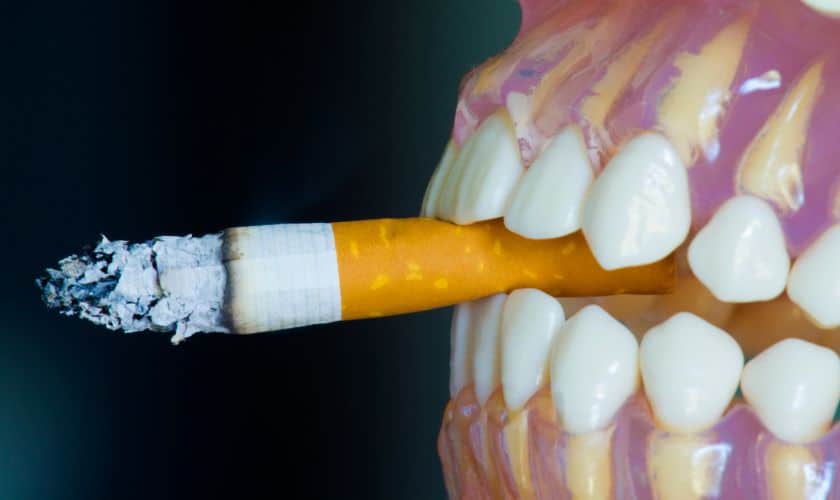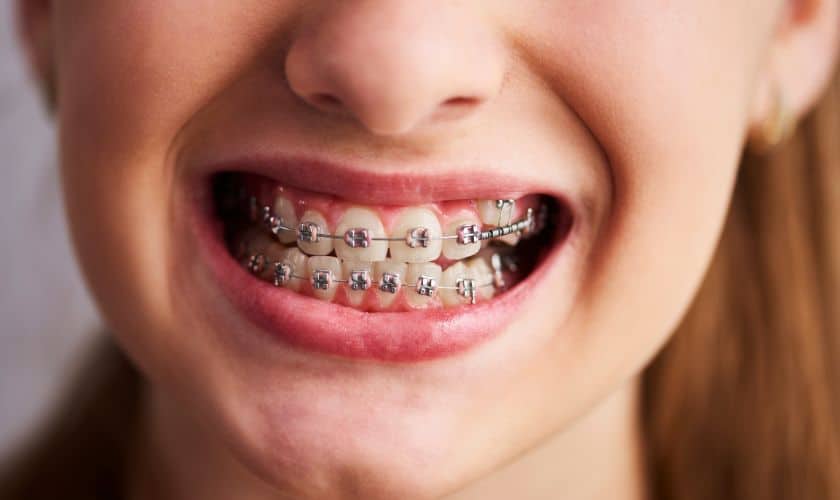March 25, 2024
Cosmetic Dentistry

In the pursuit of a bright, dazzling smile, many individuals turn to teeth whitening treatments to enhance their appearance and boost their confidence. However, for those who smoke, achieving the desired results can be a challenging endeavor. Smoking not only poses serious risks to overall oral health but can also significantly impact the effectiveness of teeth-whitening procedures. In this blog post, we’ll delve into the intricate relationship between smoking and teeth whitening, exploring the various ways in which smoking habits can hinder the attainment of a radiant smile.
What is Teeth Whitening Treatment?
Before delving into the effects of smoking on teeth whitening, it’s essential to understand how these treatments work. Teeth whitening procedures aim to lighten the shade of the teeth by removing stains and discoloration caused by various factors, including aging, consumption of certain foods and beverages, and smoking. The most common methods of teeth whitening include in-office treatments performed by dental professionals and at-home whitening kits using bleaching agents like hydrogen peroxide or carbamide peroxide.
The Impact of Smoking on Teeth Whitening Results
Smoking is notorious for its detrimental effects on oral health, ranging from bad breath and gum disease to tooth loss and oral cancer. When it comes to teeth whitening, smoking can pose significant challenges and diminish the effectiveness of whitening treatments. Here’s how smoking can impact teeth whitening results:
1. Increased Staining:
Smoking exposes the teeth to tar, nicotine, and numerous other harmful chemicals present in tobacco smoke. These substances can quickly adhere to the enamel, leading to stubborn stains that are difficult to remove through conventional teeth whitening methods. As a result, individuals who smoke often find that their teeth are more resistant to whitening treatments, and achieving noticeable results becomes a formidable task.
2. Slower Whitening Process:
The presence of nicotine and other chemicals in cigarettes can interfere with the bleaching agents used in teeth-whitening treatments. These substances can create a barrier on the tooth’s surface, preventing the whitening agents from penetrating the enamel effectively. Consequently, individuals who smoke may experience a slower and less dramatic improvement in the whiteness of their teeth compared to non-smokers.
3. Increased Risk of Relapse:
Even if initial teeth whitening results are achieved despite smoking habits, the risk of relapse is significantly higher for individuals who continue to smoke. The porous nature of enamel makes it susceptible to absorbing stains from tobacco smoke and other external sources. Therefore, smokers are more likely to experience rapid re-staining of their teeth, undoing the effects of teeth whitening treatments and necessitating frequent touch-ups to maintain results.
4. Compromised Oral Health:
Beyond its direct impact on teeth whitening results, smoking undermines overall oral health, which can indirectly affect the success of whitening procedures. Smoking is a leading cause of gum disease and periodontal problems, which can result in gum recession, tooth sensitivity, and even tooth loss. These oral health issues can complicate the whitening process, as compromised gums and teeth may not respond well to whitening agents and may require additional precautions and treatments.
Tips for Smokers Considering Teeth Whitening
While the prospect of achieving a brighter smile may seem daunting for smokers, it’s not entirely unattainable. With proper care and precautions, individuals who smoke can still benefit from teeth whitening treatments, albeit with some additional challenges. Here are some tips for smokers considering teeth whitening:
1. Quit Smoking:
The most effective way to improve teeth whitening results and overall oral health is to quit smoking altogether. By eliminating tobacco use, individuals can prevent further staining of their teeth, reduce the risk of gum disease, and enhance the success of whitening treatments. While quitting smoking can be challenging, the long-term benefits for oral health and general well-being are well worth the effort.
2. Consult with a Dental Professional:
Before undergoing any teeth whitening treatment, smokers should consult with a dental professional to assess their oral health and discuss the best approach for achieving the desired results. A dentist can provide personalized recommendations, address any concerns related to smoking, and recommend additional preventive measures to minimize the impact of smoking on teeth whitening outcomes.
3. Consider Alternative Whitening Methods:
In cases where traditional teeth whitening methods may not yield satisfactory results for smokers, alternative whitening options may be explored. These include procedures such as veneers or dental bonding, which can effectively conceal stains and discoloration caused by smoking. While these methods may involve additional costs and more extensive treatment, they can provide long-lasting results for individuals struggling with stubborn stains.
4. Maintain Good Oral Hygiene:
Regardless of whether one smokes or not, maintaining good oral hygiene is essential for preserving oral health and maximizing the effectiveness of teeth whitening treatments. Smokers should adhere to a rigorous oral care routine, including brushing at least twice a day, flossing daily, and using mouthwash to help reduce plaque buildup and prevent staining. Regular dental check-ups and cleanings are also crucial for monitoring oral health and addressing any issues promptly.
In conclusion, smoking can have a profound impact on teeth whitening results, posing challenges for individuals striving to achieve a brighter, more radiant smile. The presence of nicotine and other harmful chemicals in tobacco smoke can lead to increased staining, slower whitening processes, and a higher risk of relapse following whitening treatments. However, with proactive measures such as quitting smoking, consulting with dental professionals, considering alternative whitening methods, and maintaining good oral hygiene, smokers can still improve the appearance of their teeth and enhance their overall oral health. By prioritizing oral care and making positive lifestyle changes, individuals can overcome the obstacles posed by smoking and enjoy the benefits of a dazzling smile that exudes confidence and vitality.
Recent Post

Moms: The Guardians Of Happy Smiles On Mother’s Day and Beyond

How Long Does It Really Take To Get Veneers? Your Ultimate Guide!

Can Braces Really Cause TMJ Issues?

Prevention Starts Here: Promoting Dental Health For Oral Cancer Awareness

